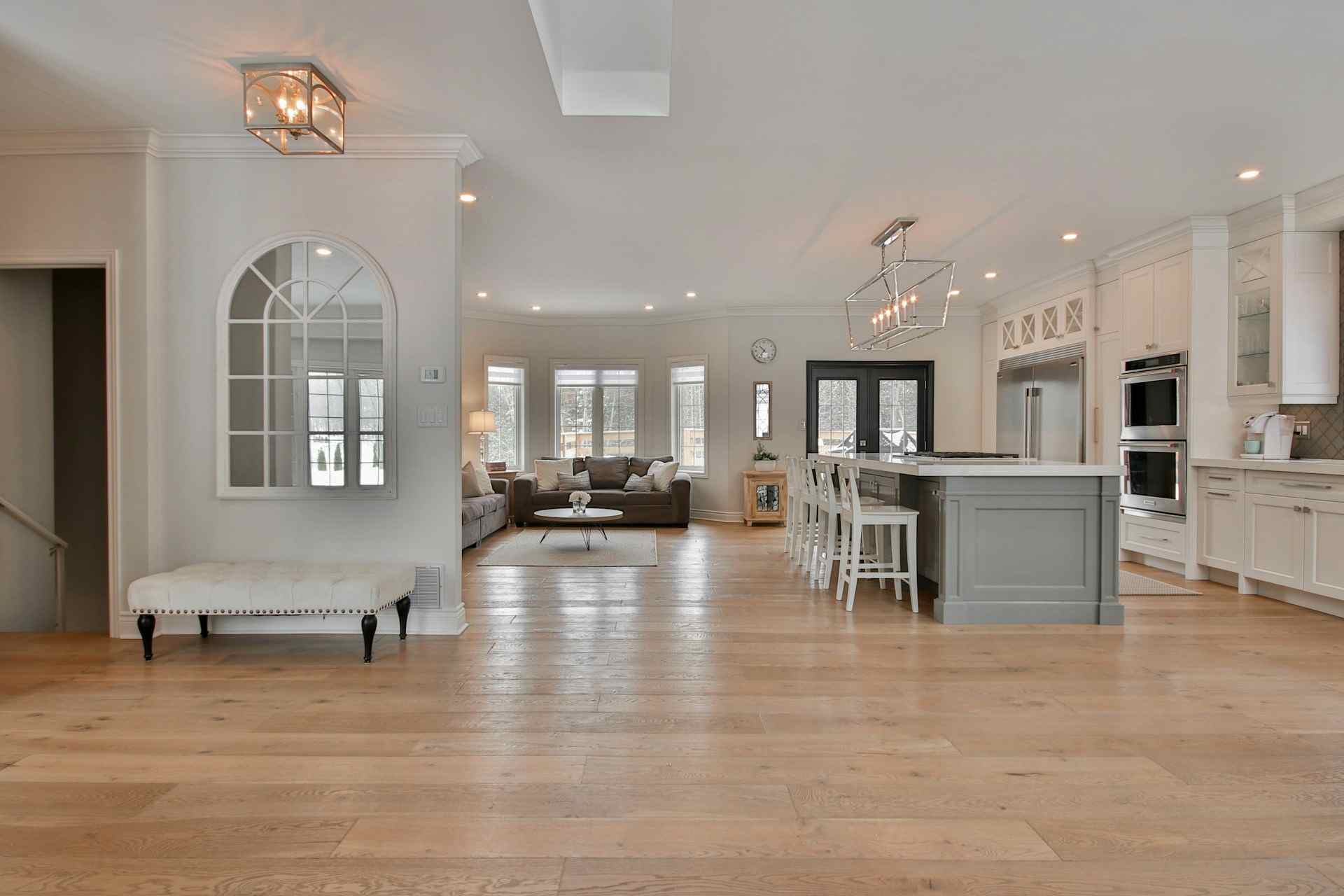Flooring is a crucial element in the architecture and design of any building, playing a pivotal role in enhancing both aesthetic appeal and functional value. Among the myriad flooring options available, epoxy flooring has emerged as a versatile and popular choice.
This article delves into the multifaceted impact of flooring on the overall design of a building, with a special focus on the transformative qualities of epoxy flooring.
The Aesthetic Appeal of Epoxy Flooring
Epoxy flooring captivates with its sleek, high-gloss finish, transforming spaces into visually stunning realms of modern elegance and sophistication. Here is the role that epoxy flooring has on the functional and aesthetic value of any building.
1. Color Palette and Design Flexibility:
Epoxy flooring offers an extensive range of colour options and design flexibility, allowing architects and designers to unleash their creativity. The ability to customise the colour palette and create intricate patterns enables the flooring to become a canvas for artistic expression. Whether it's a commercial space, industrial facility, or residential area, epoxy flooring can be tailored to complement the overall design theme.
2. Reflective Finishes and Light Enhancement:
One of the distinctive features of epoxy flooring is its high-gloss, reflective finish. This not only imparts a luxurious aesthetic but also contributes to enhancing natural lighting within a space. The reflective surfaces of epoxy floors can create a brighter and more visually appealing environment, reducing the need for excessive artificial lighting and thereby contributing to energy efficiency.
3. Seamless and Clean Aesthetics:
Epoxy flooring is known for its seamless installation, creating a smooth and uniform surface. This characteristic eliminates the presence of joints or seams that are common in traditional flooring materials. The absence of visible joints not only adds to the overall cleanliness of the space but also creates a sense of continuity, making the room appear more expansive and unified.
Functional Advantages of Epoxy Flooring in Buildings
1. Durability and Longevity:
Epoxy flooring is renowned for its exceptional durability and longevity. Its resistance to wear and tear, chemicals, and heavy foot traffic makes it an ideal choice for high-traffic areas such as commercial and industrial spaces. The longevity of epoxy flooring reduces the need for frequent replacements, contributing to cost-effectiveness and sustainability in building management.
2. Easy Maintenance and Cleanliness:
Maintenance is a key consideration in building design, and epoxy flooring excels in this aspect. Its smooth, non-porous surface is easy to clean, resisting stains and spills effortlessly. This makes it a practical choice for spaces where hygiene is crucial, such as hospitals, laboratories, and food processing facilities. The low maintenance requirements contribute to the overall efficiency and functionality of the building.
3. Chemical Resistance and Safety:
In industrial settings, exposure to chemicals is a common challenge for flooring materials. Epoxy flooring's inherent chemical resistance makes it an excellent solution for areas where spills of corrosive substances are likely. This characteristic not only ensures the longevity of the flooring but also enhances safety by minimising the risk of accidents related to chemical exposure.
4. Versatility in Application:
The versatility of epoxy flooring extends beyond its aesthetic appeal; it can be applied in various settings. From residential garages to commercial kitchens and manufacturing plants, epoxy flooring adapts to different environments seamlessly. This versatility makes it a versatile and reliable choice for architects and designers seeking a flooring solution that can meet diverse requirements.
Conclusion
In conclusion, flooring is not merely a functional aspect of building design; it is a dynamic component that significantly influences both aesthetics and functionality. Epoxy flooring, with its vast array of design possibilities and functional advantages, stands out as a material that can elevate the overall quality of a building. From creating visually stunning spaces to providing durability and ease of maintenance, epoxy flooring has become an integral part of modern architectural solutions, embodying the perfect blend of form and function. As architects continue to explore innovative ways to enhance building design, epoxy flooring remains a compelling choice that contributes to the seamless integration of beauty and utility in built environments.


